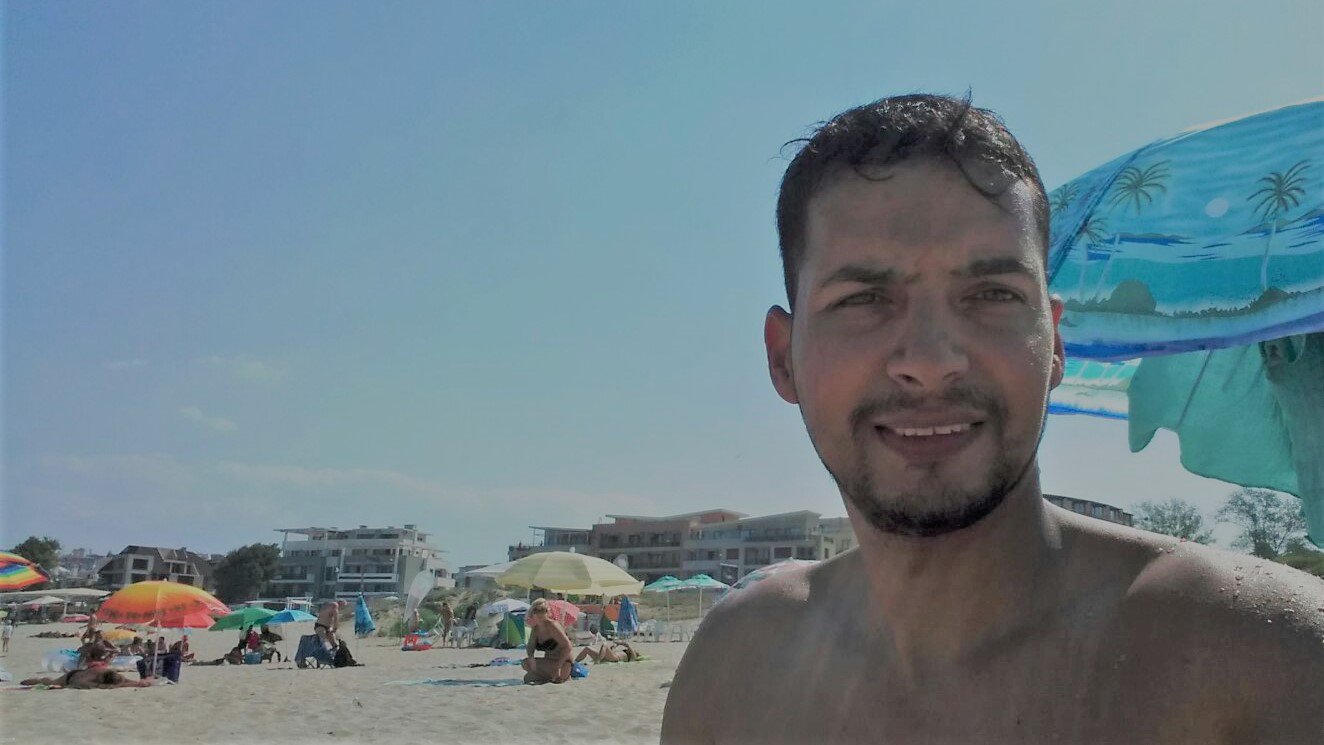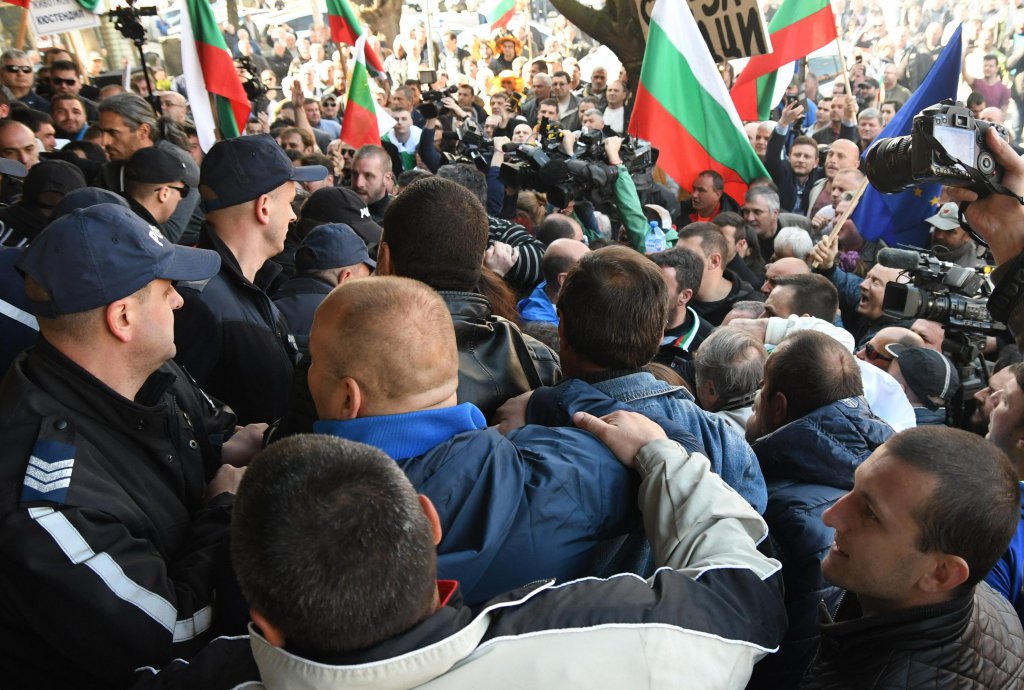Welcome to Bulgaria! Well, not if you are Roma!
14 September 2017
Over the last four days in Bulgaria, I have experienced more blatant racism than I have ever had in my entire life. I am Bulgarian Roma, dark skinned, and living abroad. I tend to go on vacation in Bulgaria every year to see my family and spend time together. But every year, I notice the situation for Roma in Bulgaria worsening. And every year, I feel less and less welcome in my own country.
Racism by the seaside
This year I went for four days to my favourite place on the South coast – Sozopol. This year I regret going there. On arriving in Sozopol I noticed that for the first time there were surprisingly no Roma at the seaside. Clearly, this was not coincidental. On the second day of my trip a car almost ran over my sister, my mother and myself while we were crossing on the street. The driver did not slow down and appeared to aim for us. He did not stop or apologise, no excuse, nothing.

The next day, I needed to use a bathroom in a café where normally one can pay and enter. I was refused. Supposedly the key was broken. I cannot prove this was not the case, but with no other Roma in the bar and a clearly unwelcome atmosphere, it seemed to be yet another ‘unfortunate coincidence’. The next day my mother and sister went to the beach alone and nearby Bulgarians commented loudly “they are everywhere, we cannot live in peace even at the seaside”. My family are only too aware of the heightened level of antigypsyism in the country, and left the beach fearing violence against them.
Fear and hatred on the rise
My recent experience of racism in Bulgaria is not exceptional nor by any means the worst, but it is part of a much larger picture of the political atmosphere in the country. More and more, we hear explicit hate speech in the media and from politicians, and see brutality against my people from police and individuals. My country is becoming increasingly, and unashamedly more racist since the neo-Nazi coalition of “United Patriots” became partners in government this year. But the politics of fear and hatred began stirring long before this:
- In 2005, Ataka (Attack) the first nationalist, and explicitly anti-Roma party won seats in the parliamentary elections. Since then, the discourse against Roma has increased considerably and influenced society at large. Anti-Roma rhetoric became much more explicit and incidents of anti-Roma racism became more regular.
- Since 2014, the situation has continued to worsen and demolitions of Romani housing and anti-Roma protests have become the norm, in particular around election time. In Bulgaria, for Roma, elections have become synonymous with anti-Roma protests, violence and destruction.
- Also since 2014, a high number of evictions of Roma in Sofia, Radnevo, Plovdiv Gurmen, Vidin, Stara Zagora, Varna and other locations were either planned or implemented. As a result, hundreds of Roma remain without alternative housing or accommodation. These evictions were normally accompanied by violent attacks against Roma by nationalist groups.
In 2016, the “United Patriots” was formed by three ultra nationalist and explicitly anti-Roma parties: the VMRO (a faction of the Bulgarian National Movement), the National Front for the Salvation of Bulgaria (NFSB), and Ataka. In May 2017, this coalition took power in the national parliamentary elections by joining with Boyko Borisov’s central right party “Citizens for the European Development of Bulgaria” (GERB). Since the elections the situation for Roma has continued to deteriorate.
After the election in March, on the 25 May the leader of the United Patriots, Valeri Simeonov, an outspoken racist, was appointed head of Bulgaria’s National Council on Co-operation on Ethnic and Integration Issues. On a number of occasions Simeonov has expressed clear racist views concerning Roma. In addressing parliament, he called Roma “[…] brazen, feral, human-like creatures […]" amongst other inciteful statements. Simeonov’s shameless appointment was heavily criticized and denounced in an open letter by about 400 activists and academics.
Early in 2013, Simeonov’s party, NFSB, has campaigned to ethnically clean Bulgarian cities of Roma, and introduce “closed in guarded concentration camps, apart from the Bulgarian population”.
On 5 May 2017, another outspoken racist from the same coalition was appointed Deputy Prime Minister for Public Order and Security and Minister of Defence – Krasimir Karakachanov. As a candidate for president in 2016 he also campaigned with the slogans “end the demographic catastrophe” and “promote literate fertility through tax breaks”. He repeatedly stressed the need for “stopping Gypsy raids and everyday (Gypsy) crime” as part of his plan to halt the demographic crisis and revive Bulgaria.
Summer timeline: Mob violence and rising tensions
Also in the period since the elections, outbreaks of mob violence against Romani communities have significantly increased. From 26 June to 4 July, a number of anti-Roma protests gathering thousands, were sparked in Assenovgrad, after an incident between Roma and non-Roma.

Photo credit: Novini.bg
On 29 June, Valeri Simeonov publicly stated he was on the side of the protesters after a meeting with Assenovorgad’s mayor, Emil Karaivanov, the head of the Plovdiv district police, Atanas Ilkov, as well as representatives of the anti-Roma protesters, and Karakachanov. He stated that after the conflict in Assenovgrad, a procedure of evaluation and demolition of all unlawful buildings in the Romani neighbourhood “Loznitsa” will be initiated. As an outcome of the meeting, he promised “a police station in the Romani neighbourhood to protect the athletes bullied by the Roma” will be established. Simeonov promised that during his mandate there would be a much different treatment of interethnic conflicts than before.
On 4 July, after an evaluation of the buildings in the Romani neighbourhood in Assenovgrad, the mayor Karaivanov has stated to the national media “Nova TV” that all 120 buildings deemed illegal in “Loznitsa” which can be legally removed will be demolished. Shortly after, the municipality issued a notice for removing 17 buildings in the Romani neighbourhood considered to be illegal (constructed without building permit). This in practice makes the inhabitants homeless as there is not any alternative solution for housing proposed to them. Such evaluation, and the following eviction of more than 800 persons is deemed discriminatory and a form of harassment, as this has targeted only the Romani segregated area in the city, and has been initiated as a direct consequence by the demands of non-Romani citizens during aggressive ethnic protests.
On 11 July, Simeonov told the media “we expelled 843 gypsy-settlers without a registered address in Assenovgrad ghetto, 15 buildings were deemed illegal, the institutions started a procedure for their abolition.” He again insisted a police station is necessary, this time in all “Roma ghettoes” to “overcome the criminality” inside the Romani neighbourhoods. Simeonov called for strengthening measures against the ‘petty crimes’ inside the Romani communities.
On 8 and 9 July, other protests were organised in Smolian and Biala. In Biala the protests started after a conflict between a non-Roma boy and Roma, 18-years old boy was seriously injured. In Smolian a similar incident lead to another anti-Roma protest. The incident occurred after a 27-year-old non-Roma man harassed a Romani girl in a club, which led to violence between him and two Romani men. During the incident the non-Roma was severely injured.
The protests were subsequently organised against alleged “Roma violence and harassment”. The use of such terms has been widely spread in the media to call for authorities to take immediate measures against “the Romani crime”. This only serves to spread fear and hatred by associating the Roma with large-scale criminality.
With Karakachanov as Minister of Defence holding clearly anti-Roma biases, it comes as no surprise that things only got worse:
On 8 August, after a case of sexual harassment with an alleged Romani perpetrator, masked police officers raided the Romani neighbourhood in the village Kamenar (Varna region). They beat about a hundred Romani individuals, including children and two pregnant women. The incident was recorded by a number of Romani residents according to the same sources. There were similar police raids in other Romani populated areas in the region (in “Maksuda” neighbourhood, “Asparuhovo”, “Staria Hlebozavod”). None of the incidents were reported to the police and the conflict has been heavily ethnicized which contributes to already escalated tension.
Break the silence
It has become apparent that since the appointment of Simeonov and Karakachanov, the situation for Romani people in the country has considerably worsened. It appears that there is a new wave of police violence and systematic policies of persecuting Romani communities in the country. It appears that from a small number of seemingly everyday incidents with alleged Romani perpetrators, a portrayal of massive and systematic Romani crime has been created, for which the entire Romani community is blamed and consequently punished. Incidents such as those in Varna and Asenovgrad are emblematic for such systematic actions against Romani people. These facts give an impression that the 2013 agenda of ethnically cleansing cities of their Roma population has started gaining ground. Instead of adequate actions to counter violence and promote tolerance and inclusion, we see the opposite. The silence on this needs to be broken. The systematic harassment of Romani people in Bulgaria needs to be acted upon before it is too late. The tools are there. The justice system is built upon the principle of promoting equity, peace and defending the rights of all its citizens. The European Commission has the power to condemn such actions and put pressure on states that blatantly disregard the Racial Equality Directive.
The very fact that police officers can enter Romani neighbourhoods and start beating random innocent people is enough to understand that there is something very wrong with Bulgaria. This is repression. These are brutal acts of discrimination; this isn’t a simple case of individuals threatening Romani people. Police officers follow orders, normally from the institution that they represent. This institution is the state.




